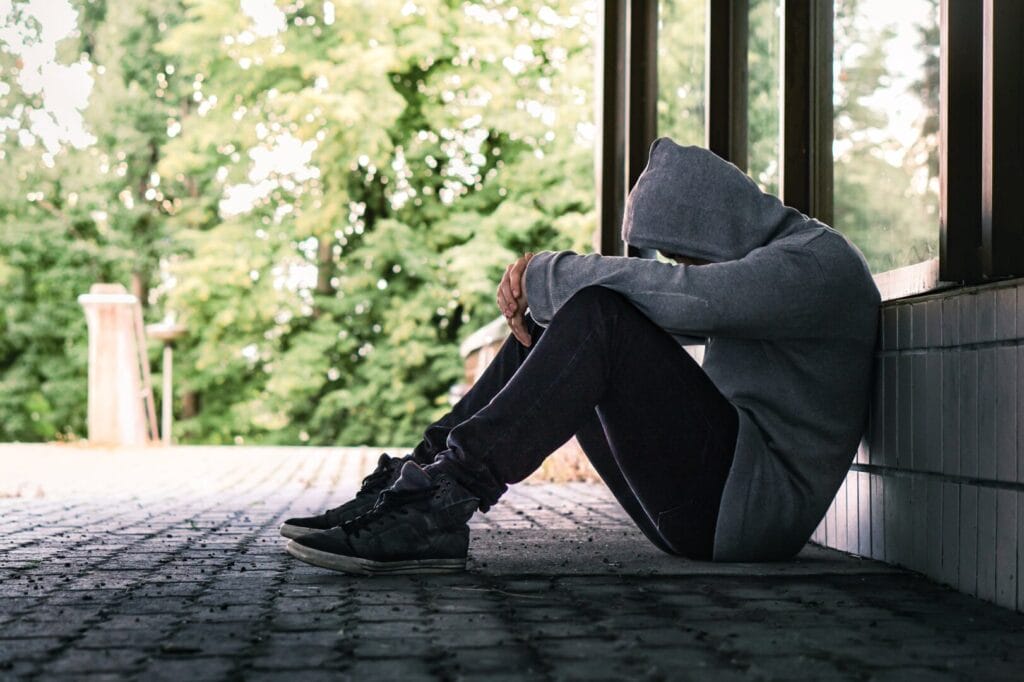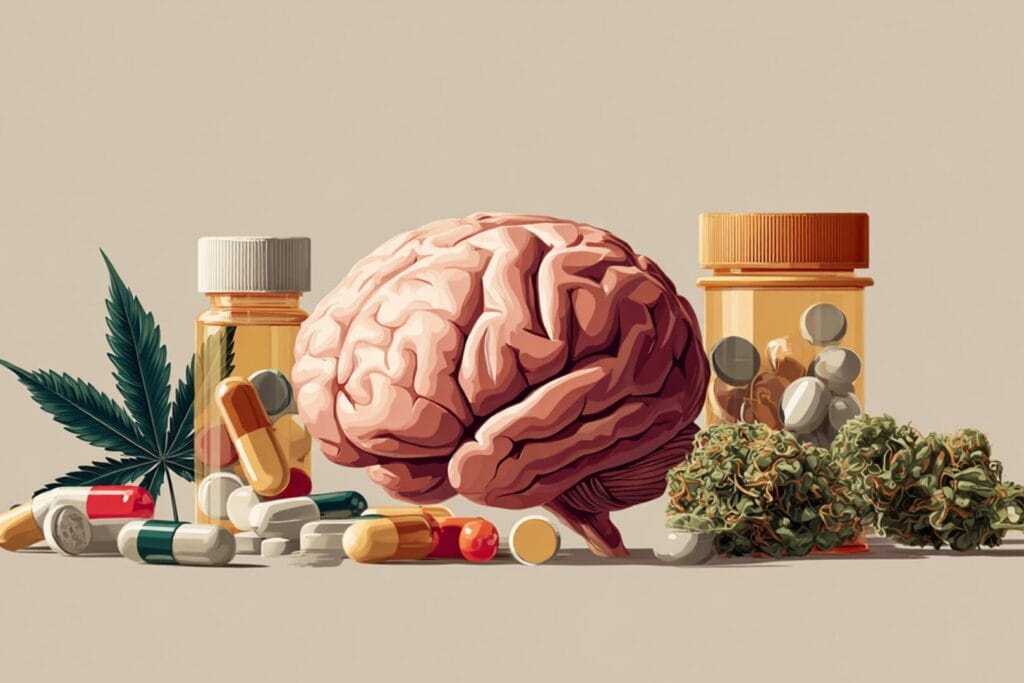What Is Depression?
Depression, also known as a major depressive disorder, is a prevalent medically severe condition that negatively affects how a person feels, thinks, and acts. Depression is considered, in most cases, a treatable condition. Clinical depression causes sadness and a loss of interest in any activity that a person typically enjoys. Being depressed may make a person feel various emotional and physical problems and subsequently decreases an individual’s ability to function properly.
Depression is, in the simplest terms, a mood disorder that mainly involves persistent feelings of sadness and loss of interest. Depression is different from mood swings or mood fluctuations which are a part of people’s everyday lives.
Depression can be caused by major life-changing events, such as losing a loved one or being fired. It is, however, essential to note that medical professionals only consider feelings of grief as a part of depression if those feelings persist.
Does Depression Make You Prone to Addiction?
Depression and substance abuse tend to go hand in hand, with individuals seeking to relieve depressive feelings with drugs or alcohol. Depression increases the likelihood of developing an addiction. Addiction and depression, as co-occurring disorders, can be, in most cases, an effect of each other.
The Most Common Types of Depression
There are different types of depression; there are, however, seven prevalent types of depression; they include the following:
Major Depressive Disorder (MDD)
This is chronic depression; feelings of sadness and loss characterize it.
Persistent Depressive Disorder (PDD)
This is also referred to as Dysthymia, it’s not as severe as the MDD, but it can be challenging. The symptoms of persistent depressive disorder usually last for about two months.
Bipolar Disorder (BD)
This is a mood disorder characterized by some periods of abnormally elevated moods known as Mania. This type of depression comes with physical and emotional symptoms such as feelings of fatigue and pain.
Postpartum Depression (PD)
This Depression arises from the hormonal imbalance that comes from pregnancy; it can occur during pregnancy or after the birth of a child. It is often called “baby blues”; this could last for about two weeks or even longer.
Premenstrual Dysphoric Disorder (PMDD)
This type of depression comes before the female monthly menstrual period. It presents as feelings of sadness, irritability, hopelessness, anxiety, and fatigue.
Seasonal Affective Disorder (SAD)
This variant of depression comes mostly during winter. It comes with a feeling of sleeplessness and weight loss. It is the most difficult to pinpoint, making it easier to go unnoticed for an extended period.
Atypical Depression
This form of depression does not follow the usual symptoms of depression; it comes with symptoms such as overeating, oversleeping, weight gain, oversensitivity to rejection, etc. in most cases, people who have this kind of depression might not be aware they are depressed as it doesn’t take the face of the usual symptoms of depression.
Depression and Co-occurring Addiction
Alcohol addiction and depression are common. Individuals who suffer from depression tend to depend on excessive use of alcohol to gain a temporary feeling of euphoria. Alcohol is used to suppress feelings of sadness and anxiety due to its effects on the brain.
Depression in Alcohol Addiction
Alcohol has a relatively high addictive potential, and its effects are only temporary in masking depression-related symptoms. Alcohol can worsen depressive symptoms as time goes by, leading to addiction and increased addiction severity.
Depression and Marijuana Addiction
Users have indicated marijuana use to ease the symptoms of depression. It is important to note that this benefit is usually short-term. Consistent use of marijuana to numb depressive feelings can cause high levels of dependency, which often may grow into a full-on addiction.
Although marijuana hasn’t been found to cause depression, marijuana smokers are more likely to be diagnosed with depression than individuals who do not smoke marijuana.
Depression and Stimulants Addiction
Specific forms of depression occur due to a reduction in dopamine levels in the brain. In contrast, most stimulants work by increasing dopamine levels. Although stimulants can help manage depressive symptoms, they often make things worse.
Certain studies show that exposure to heightened dopamine levels can cause depression. This is due to different mechanisms in the brain, most notably dopamine receptor downregulation.
How to Help Someone with Substance Addiction
Empathy involves understanding and sharing another person’s feelings. People who struggle with Addiction and depression go through many physical and, at times, emotional hardships. Try to see things from their perspective and offer them as much support, love, and care as possible.
Set Boundaries
Setting boundaries can help the road to recovery a lot quicker and avoid relapses. Set financial limits to make it hard for them to fund their addictions and develop specific levels of emotional boundaries without being mean to help them see how serious the problem is.
Be Non-Judgmental
Try to be supportive and apprehensive of negative behavior without appearing judgmental. This is especially important when dealing with depressed individuals to prevent them from feeling even worse about their situation.
Be Honest About the Problem
Make the situation clear so they can see the challenges and work through overcoming them. Be apprehensive of negative behavior and call out telltale signs that indicate relapses.
Offer Solutions
Please read up on their condition and how it affects them. Seek expert care and offer to initiate interactions with professionals who can help. Offer viable solutions and take things one at a time while ensuring they get the care they require.
Signs and Symptoms of Depression and Addiction
There are several symptoms of depression and substance abuse.
Common Symptoms of Depression
These include the following:
- Hopeless outlook on life
- Loss of interest
- Lack of sleep
- Increased fatigue
- Anxiety
- Uncontrolled emotions
Severe Symptoms of Depression
These include:
- Suicidality
- Guilt and worthlessness
- Loss of appetite
Common Signs of Addiction
These include:
- Financial issues
- Extreme mood change
- Lying
- Sudden energy change
- Sense of urgency
- Secretiveness, etc.
How Does Depression Make You Prone to Addiction?
Depression and substance abuse are often found together in most cases. Addiction and depression are, in some cases, a result of each other. An addicted person could quickly get depressed, and a depressed person could easily become addicted to abusing substances.
It is only natural for people to seek a way to numb the unpleasant feelings that are characteristic of depression. This often leads to a downward spiral where in trying to avoid the feelings of depression, a person begins to use and depend on substances which subsequently leads to addiction.
Risk Factors for Depression and Addiction
Some risk factors for depression and substance abuse include:
- Family history and genetics
- Excessive stress
- Gender of a person
- Improper nutrition
- Grief
- Personality traits of a person.
Some common addiction risk factors include:
- Peer pressure
- Less involvement of loved ones
- Intake of highly addictive drugs
- Mental health disorders, including depression.
Self-Care Tips for Those With Depression or Addiction
If you or a loved one struggles with depression, a substance abuse disorder, or both, it’s essential to maintain physical, mental, social, and emotional well-being. Self-care can help manage overall stress levels while also increasing energy, both of which are beneficial for those in recovery or dealing with mental health struggles.
Here are ten self-care tips you can utilize to increase well-being:
- Getting regular exercise
- Eating well-balanced meals and staying hydrated
- Getting enough sleep
- Starting meditation or other wellness activities
- Setting personal goals or priorities to look forward to
- Practicing gratitude
- Taking time for yourself
- Focusing on positivity
- Staying connected with loved ones
- Taking care of your physical health and regularly attending doctor’s appointments
How to Start Self-Care
Self-care looks different for everyone, so it’s important to find what works for you. The tips above will help with overall health and wellness, but specific self-care tips might vary from person to person. Make sure to utilize what is most beneficial for you and your overall mental health.
Starting any self-care activity or routine can be overwhelming at first, so we recommend starting small, like taking a long, relaxing bath or walking around the block. As the self-care routines begin to settle in, consider incorporating more and employing other tactics that aid healing and recovery.
Treatment for Depression and Addiction
There are three primary methods used in depression and addiction treatment, they include:
Medication
There are several forms of medication for depression and addiction treatment depending on the substance involved. Antidepressants are administered with the help of a clinician to help patients manage depression. Several antidepressants include tricyclic antidepressants, selective serotonin reuptake inhibitors, and monoamine oxidase inhibitors. These drugs help modulate and restore imbalances of neurotransmitters in the brain, which lead to depression.
Several forms of medication that help manage withdrawal symptoms during addiction detoxification are also available. For example, some patients may benefit from naltrexone or topiramate, which help manage withdrawal symptoms when trying to quit alcohol usage.
Therapies
Therapy involves the treatment of an individual without the use of medication or invasive procedures. Therapy can be beneficial for mental and physical illnesses. Therapies are fantastic for addiction and depression treatment.
They involve gradually going through the root cause of the problem with an expert while developing healthy recovery mechanisms. There are several forms of therapy, such as Psychotherapy, Cognitive Behavior therapy (CBT), Interpersonal therapy, Group therapy, Family therapy, Behavioral therapy, and Individual therapy. Treatment using therapy can be done through:
- Depression management therapies
- Addiction treatment therapies
Support Groups
Patients can participate in group therapy sessions with other recovering patients to share experiences, build relationships and encourage one another on the road to recovery.
Find Treatment for Alcohol Use Disorder at San Diego Detox
At San Diego Detox, we specialize in helping patients struggling with Addiction maintain their sobriety and regain their lives. San Diego Detox is fully licensed, and one of the best addiction and depression treatment centers in the United States, and we provide various forms of co-occurring disorders treatment. We offer various treatment options that are also designed to give individuals with clinical depression all the care they need in a supportive environment.
Integrated Treatment Program
Our experts are also trained to cater to comorbidities involving integrated treatments for co-occurring disorders such as depression and substance abuse. Managing multiple conditions can be tricky, but this is our area of expertise at San Diego Detox. Depending on patient needs, clinicians may accomplish this through pharmacotherapy, psychotherapy, or both.
Inpatient Rehab
Inpatient rehab for depression and addiction offers 24/7 care for individuals who have difficulty recovering independently. The initial stages of recovery can be challenging, especially during dual diagnosis treatment, and expert care is needed to avoid relapses or negative emotions when dealing with Addiction and depression. Patients are placed in our homely facility, where they get supervision and expert care to fully recover from depression and drug addiction.
For more information on how to seek help for depression and addiction recovery for yourself or a loved one, Contact please reach out to us at San Diego Detox immediately.
Resources
- https://www.medicalnewstoday.com/articles/8933#definition
- https://www.healthline.com/health/depression/recognizing-symptoms#emotions
- https://www.medicalnewstoday.com/articles/severe-depression#symptoms
- https://www.verywellmind.com/symptoms-of-addiction-22244
- https://psychcentral.com/depression/what-are-the-risk-factors-for-depression#depression-risk-factors
- https://www.mayoclinic.org/diseases-conditions/depression/expert-answers/marijuana-and-depression/faq-20058060
Frequently Asked Questions
Yes — depression can increase the likelihood of someone developing a substance use disorder, because people often use alcohol or drugs to self-medicate their depressive symptoms when they feel sad, hopeless, or numb.
Common signs include persistent sadness or hopelessness, loss of interest or pleasure in activities, insomnia or oversleeping, fatigue, mood swings, hopeless outlook — along with secretive behavior, financial problems, erratic mood or energy changes, lying, or sudden changes in priorities
Treating both conditions simultaneously is crucial because depression and addiction interact and reinforce each other — if you only treat the addiction but ignore underlying depression (or vice versa), relapse or a return of depressive symptoms becomes more likely.
Effective treatment often combines medication (such as antidepressants or medications to ease substance-use withdrawal) with therapy (individual, group, family, cognitive-behavioral), and support through structured care settings — especially when there are co-occurring disorders.







